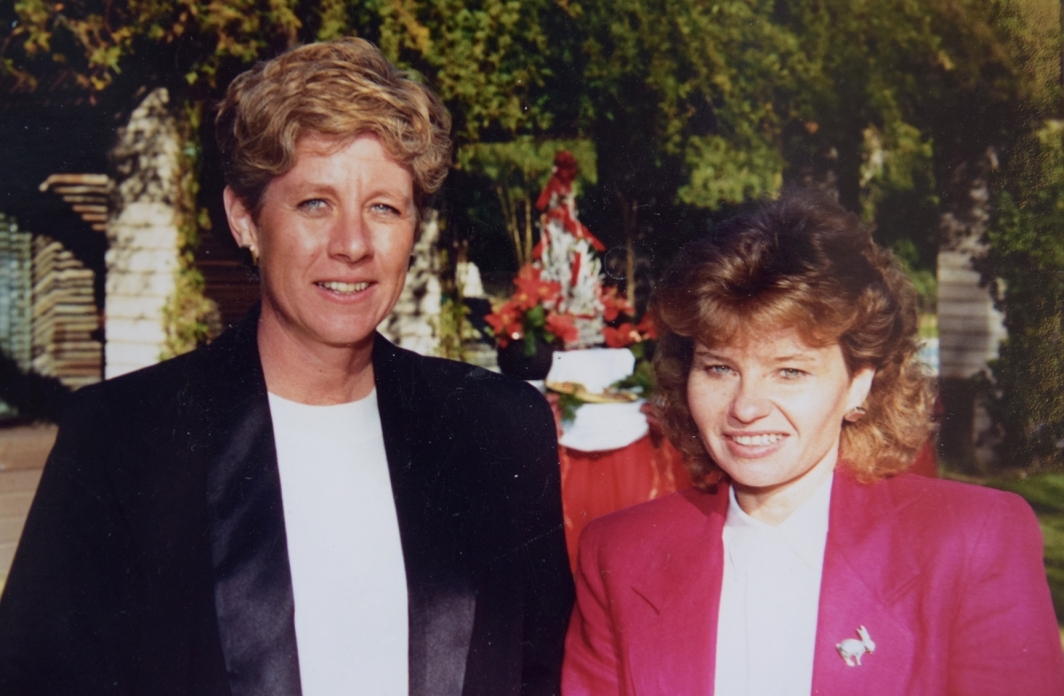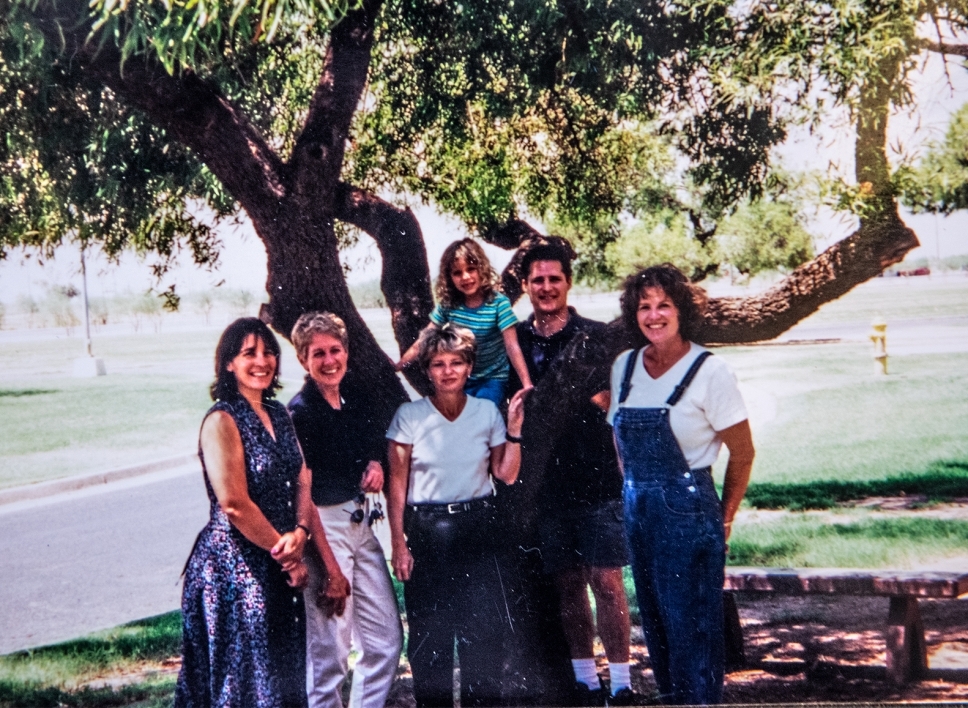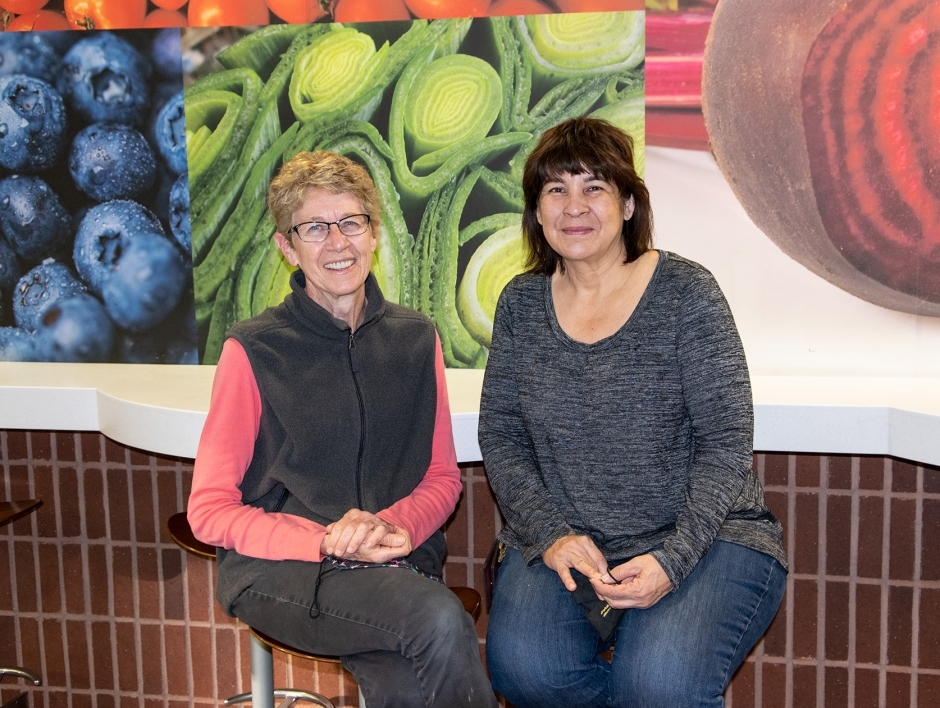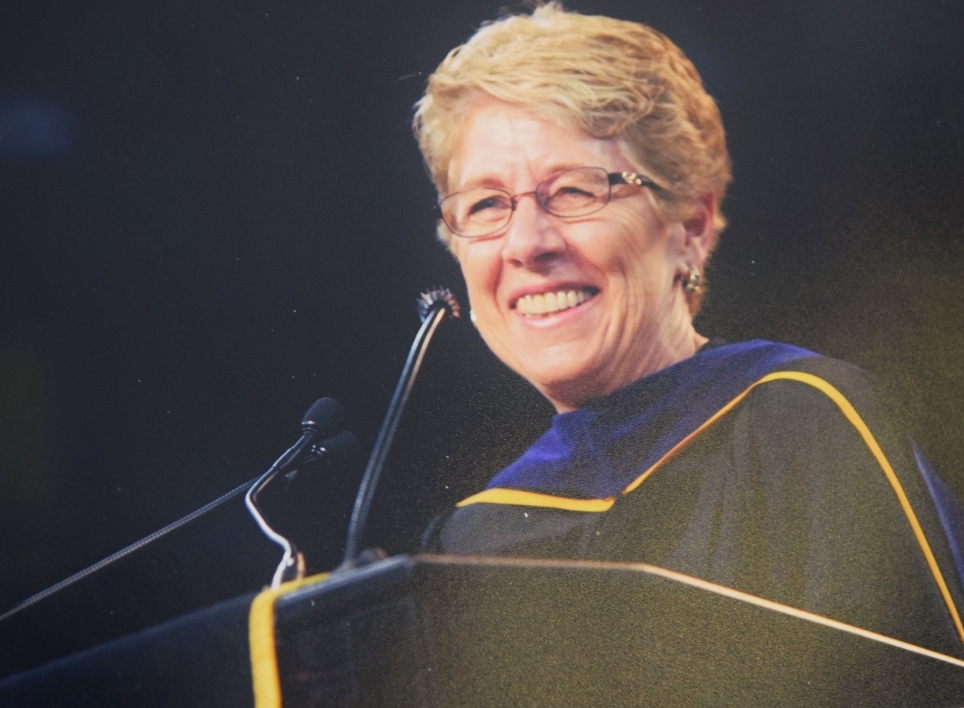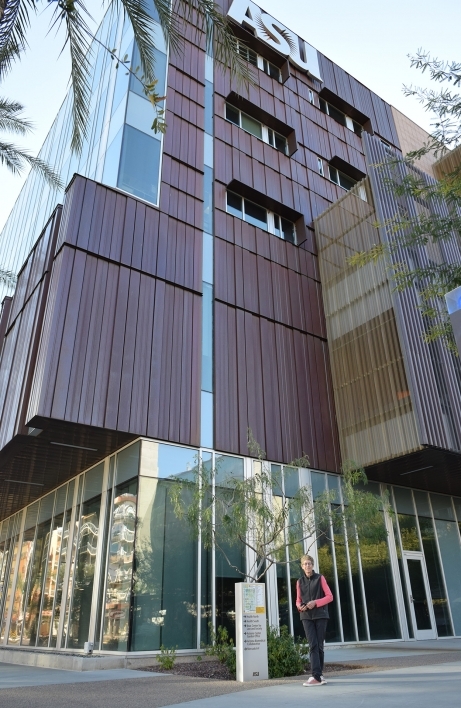Nourishing a profession
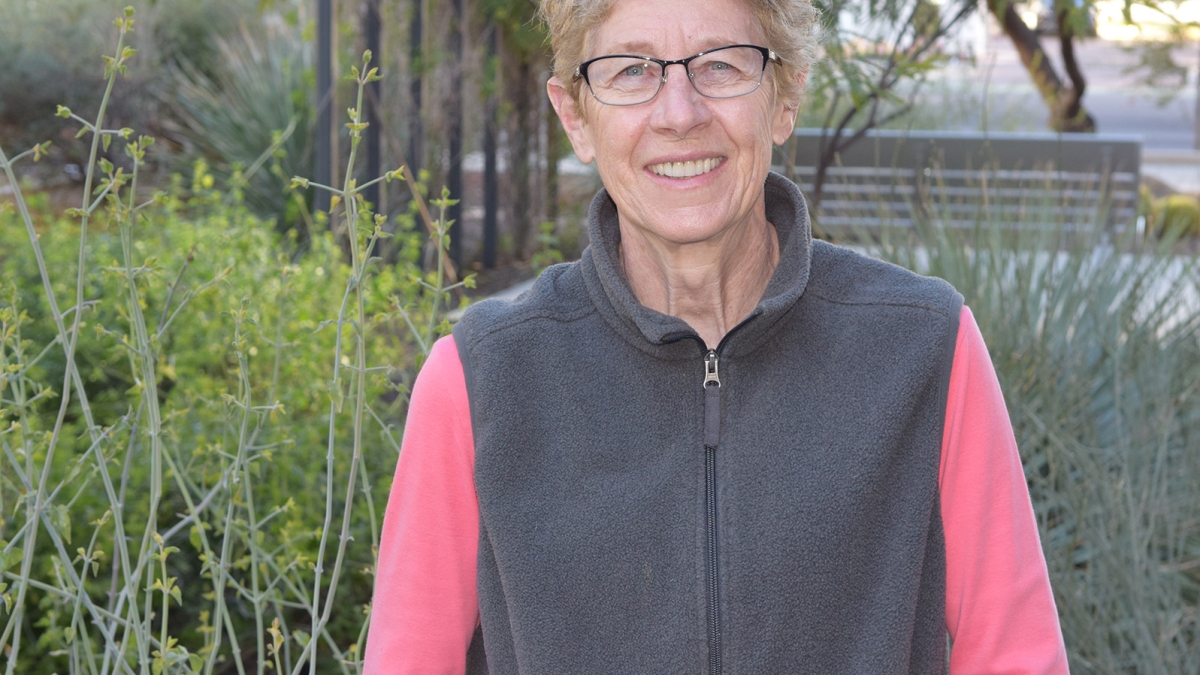
When she retired in 2016, Professor Emeritus Linda Vaughan established the Linda A. Vaughan Scholarship Fund to help nutrition students at ASU's College of Health Solutions finance their educations.
Arizona State University’s College of Health Solutions is now home to one of the largest and most respected nutrition and dietetics programs in the U.S., but there was a time when nutrition at ASU was a small program in ASU’s Department of Home Economics, tucked away among its degrees in family studies, housing, textiles and clothing.
Linda Vaughan, professor emeritus and former director of the nutrition and dietetics program, was one of the driving forces behind its transformation into a thriving program of almost 1,000 students, five bachelor’s degrees, three master’s programs and a collaborative PhD in exercise and nutritional sciences, all located in a prominent place on ASU’s Downtown Phoenix campus.
Even in retirement, she has continued to shepherd the nutrition program’s growth through the Linda A. Vaughan Scholarship Fund, an endowment that helps nutrition students realize their academic goals.
Humble beginnings
Recalling her early days at the university, Vaughan said, “We had a very traditional home economics department with degrees typical of the 1980s — family studies, child development, textiles and clothing, and a housing unit.” Then the program modernized, changing its name to family studies and human development, but reference to the nutrition program was left out of the new name.
Several years later, room for the nutrition program became available on the ASU Polytechnic campus. Under Vaughan’s leadership, the nutrition program moved there, giving the program both autonomy and more visibility in course catalogs and other ASU documents, which immediately spurred growth.
There was room for improvement, however. The Polytechnic campus opened in 1996 on the former Williams Air Force Base in Mesa, and the nutrition program was housed in the Air Force base’s remodeled buildings.
“What used to be operating rooms at the Air Force base hospital was turned into our research space,” Vaughan said. “The cafeteria was rehabbed into our food labs. That was a challenge.”
So was the site’s location, a 35-minute drive from ASU's largest campus in Tempe and a distant trek for anyone in the northern and western parts of the Phoenix metro area. Then, eight years later, the university moved Vaughan and her team to ASU’s Downtown Phoenix campus. The program got new teaching and research labs, a commercial kitchen to teach food and restaurant management, and access to the latest in instructional technology.
“It was the best move ever,” Vaughan said.
The nutrition program’s enrollment surged from 60 students in the Department of Home Economics to more than 500 when Vaughan retired in 2016 after 36 years at ASU.
MORE: ASU's nutrition program: 100 years in the making
A lasting legacy
“There’s no question that Linda Vaughan was the most well-known nutrition educator in the state of Arizona and one of the most prominent in the country,” said Christina Shepard, a clinical professor of nutrition in the College of Health Solutions. “She made a huge difference in the profession of nutrition and dietetics.”
Vaughan’s expertise and professional leadership were key to shaping the program’s innovative focus.
“The traditional concept of nutrition is what you eat and how your body responds,” Vaughan said. “Now, nutrition is examined on the cellular level, not just the macro level.”
In today’s nutrition program at ASU, you’ll find collaborations with psychologists, exercise scientists, researchers involved in genomics, a medical master’s program developed in collaboration with the Mayo Clinic, and the nation’s first doctoral program to fully integrate nutrition, exercise and wellness. Most of these changes happened under Vaughan’s watch.
“We really broadened the concept of what nutrition is,” she said.
Nurturing nature
Along with elevating the profession itself, Vaughan was always known and loved for her giving spirit at ASU. Kathleen Dixon, a clinical professor of nutrition in the College of Health Solutions, recalls her mentoring younger colleagues, supporting work-life balance in word and deed, and giving back through community service projects. Once, after helping a community food bank assess the nutritional value of the food packages it gave families in need, Vaughan also found time to help out as a volunteer.
“I can remember so many times at the holidays when Linda would be driving around with a trunk full of turkeys to give people,” Dixon recalled.
Dixon started at ASU as a single mom who had never worked in academia before. “I came from a clinical dietetics role,” she said. “Linda made sure I got all the resources I needed to succeed in my job, and she was very good at helping me grow professionally. She was very supportive of all her students and faculty.”
Shepard credits Vaughan with making her career possible, too. “I started as Linda’s graduate student,” Shepard said. “I was assigned to her as a teaching assistant, and then she became the chair of my graduate committee, so she’s been my mentor ever since graduate school.”
Just as she helped Shepard and Dixon, Vaughan still supports ASU nutrition students. Upon her retirement, she established the Linda A. Vaughan Scholarship Fund to help students of high academic merit and financial need.
“Quite a few of my students have received that scholarship, and it has helped them tremendously,” Shepard said.
To date, Vaughan herself has donated more than $50,000 to this scholarship fund. Many of her friends and former colleagues also contribute on an annual basis, a testament to the respect and impact she continues to have on the program and its students, well after retirement.
For Vaughan, it is her way to give back to students who need the kind of help she needed to complete her own degrees.
“I got financial support throughout my own education,” she said, including at the University of California — Davis, where she earned her bachelor’s degree; at Cornell University, through a National Science Foundation grant that paid her way for her master’s degree; and later, support at the University of Arizona, where she completed her doctoral studies.
“It made such a difference that I could access these amazing institutions of higher education and pursue my personal and professional goals without having the financial means to do so,” Vaughan said.
Despite all those diplomas, Vaughan was unable to attend graduation ceremonies for her first two degrees because she finished her programs early and didn’t have the cash to get back to school to participate. Hardships such as those make her determined to keep giving to the scholarship that bears her name.
“Funding constraints and the need to keep working are everyday realities for so many students, now more than ever,” she said. “Any small assistance the scholarship can provide ASU nutrition students helps alleviate some of those realities.”
For more information about how to help College of Health Solutions nutrition students achieve their dreams of a college degree through the Linda A. Vaughan Scholarship Fund, contact the college's director of development, Alma Chavez Strasser, at alma.strasser@asufoundation.org or 602-540-2312.
More Health and medicine

New study seeks to combat national kidney shortage, improve availability for organ transplants
Chronic kidney disease affects one in seven adults in the United States. For two in 1,000 Americans, this disease will…

New initiative aims to make nursing degrees more accessible
Isabella Koklys is graduating in December, so she won’t be one of the students using the Edson College of Nursing and Health…

Reducing waste in medical settings
Health care saves lives, but at what cost? Current health care practices might be creating a large carbon footprint,…


